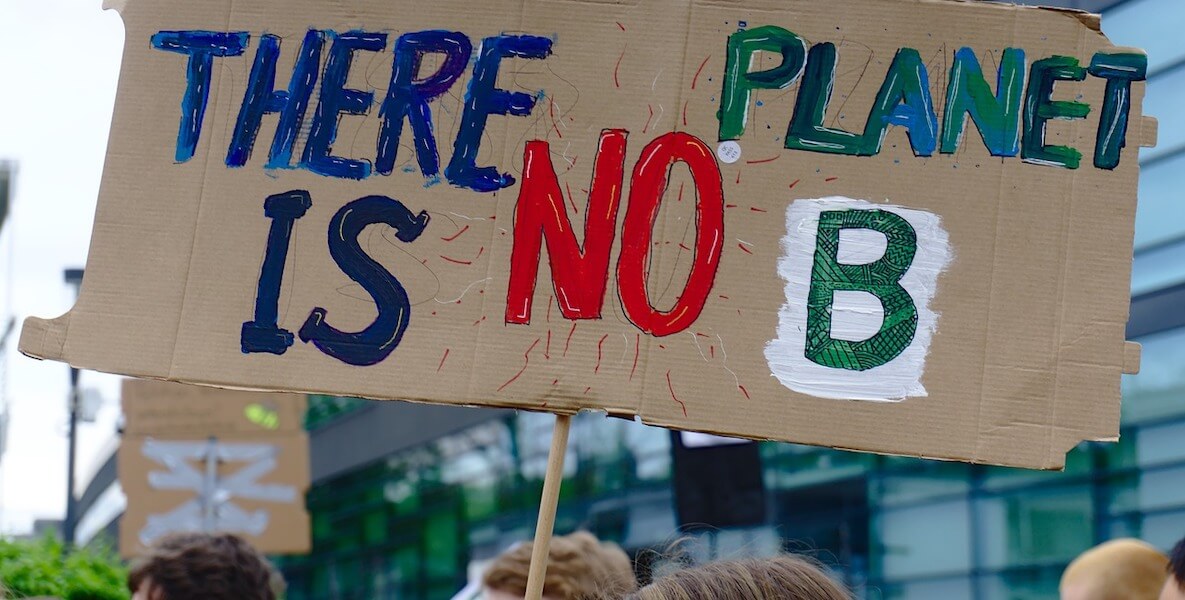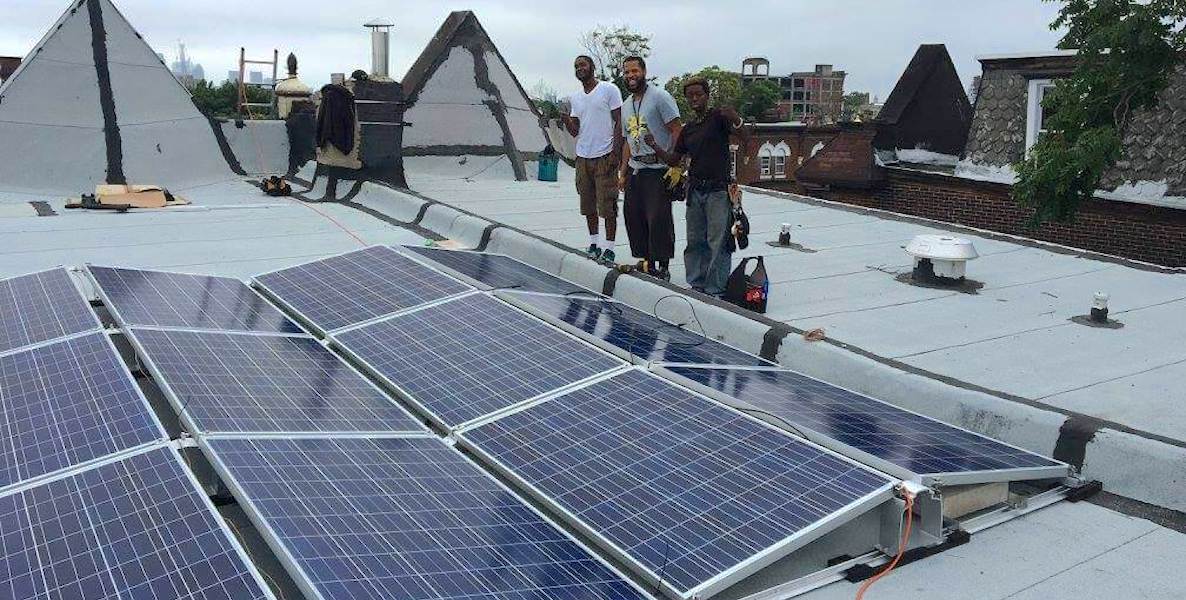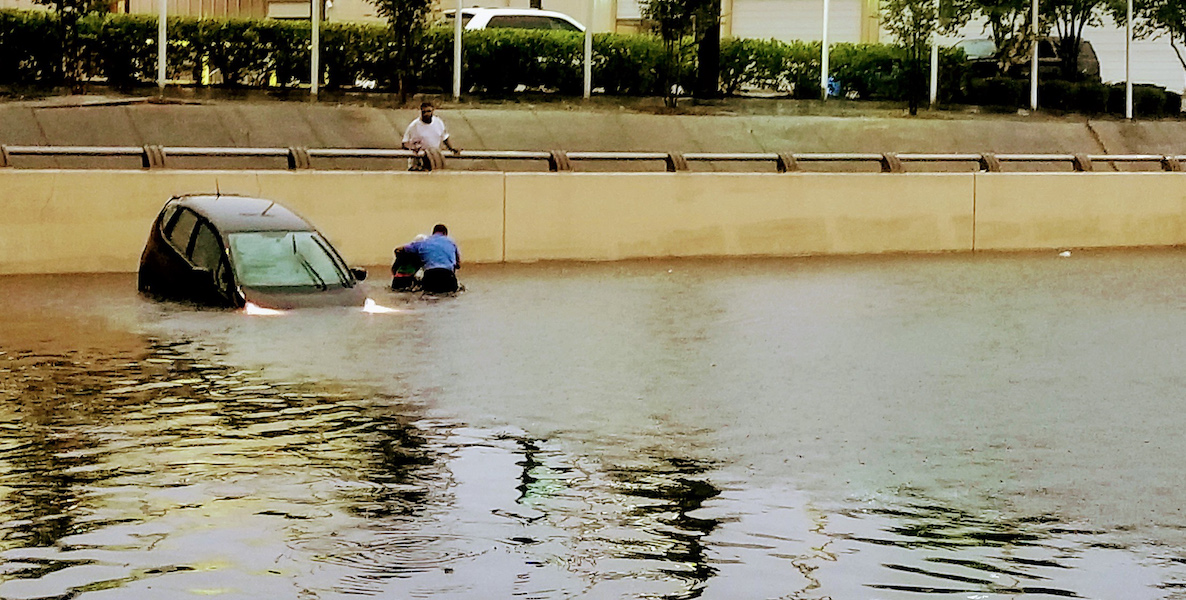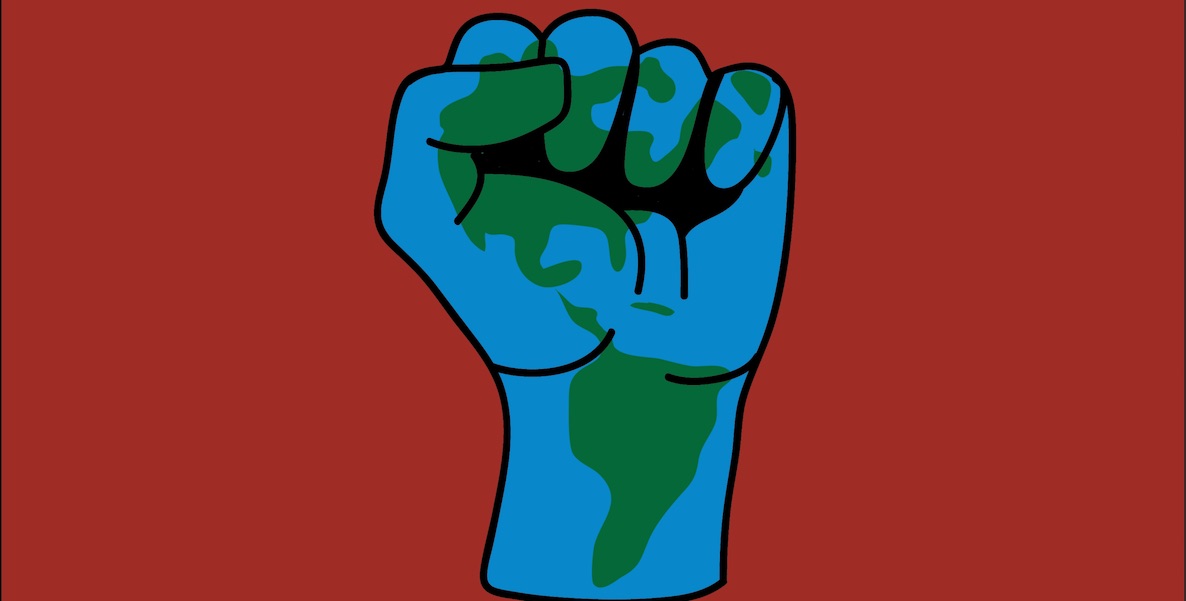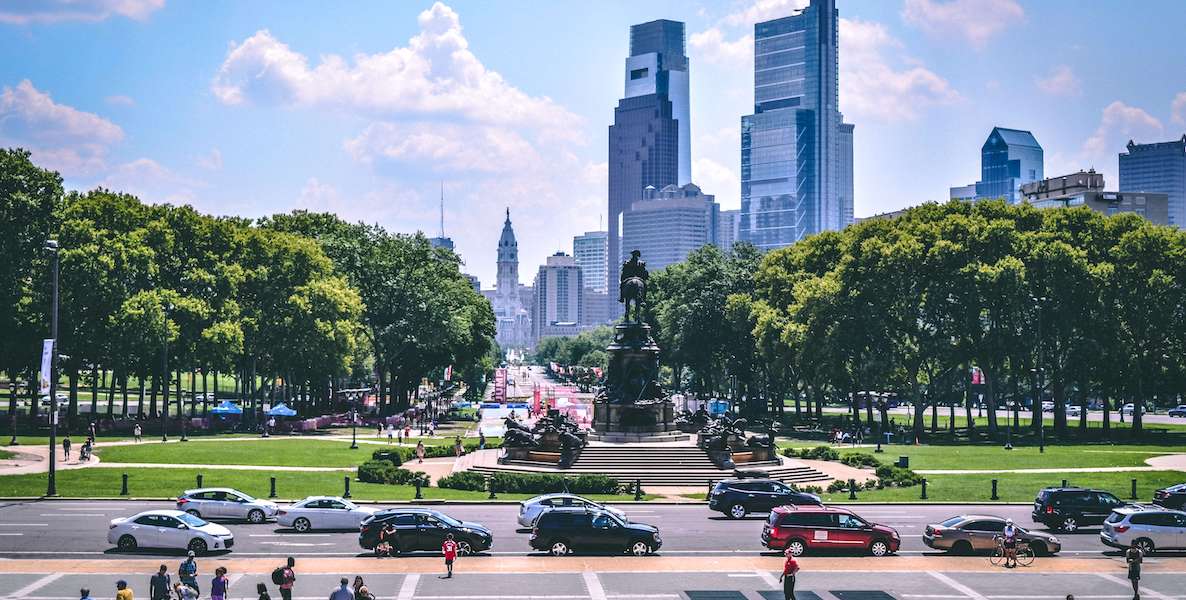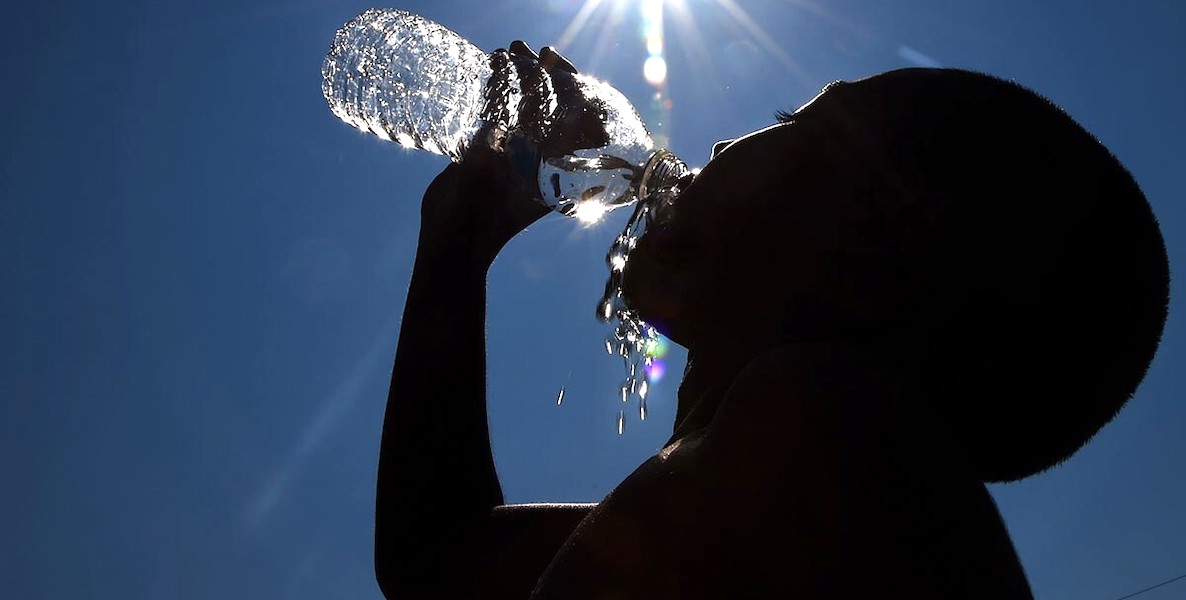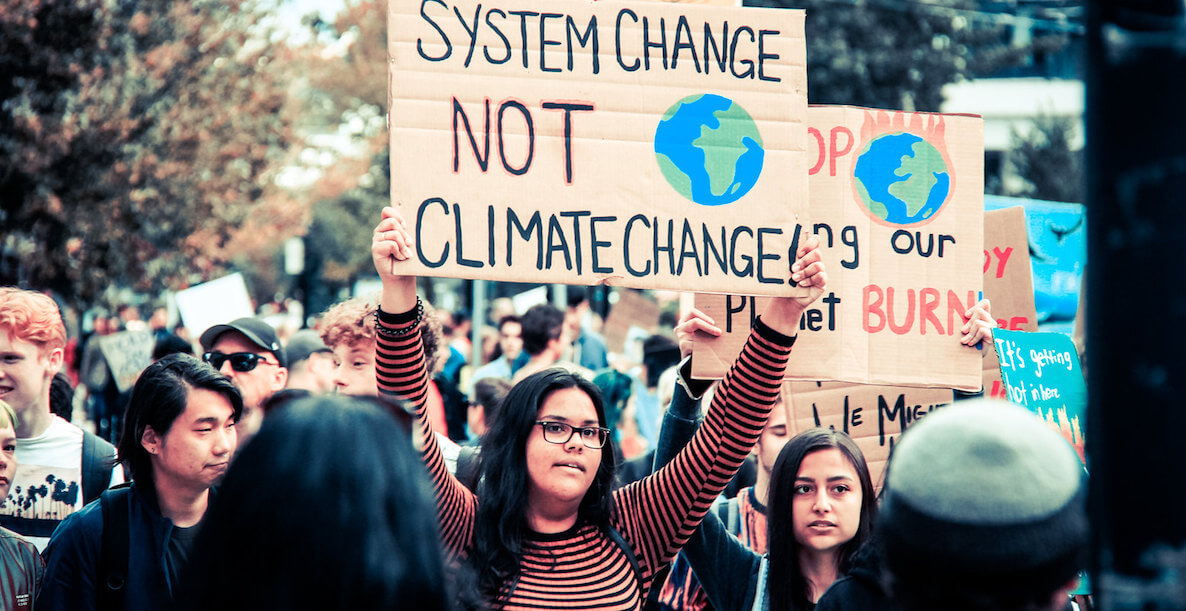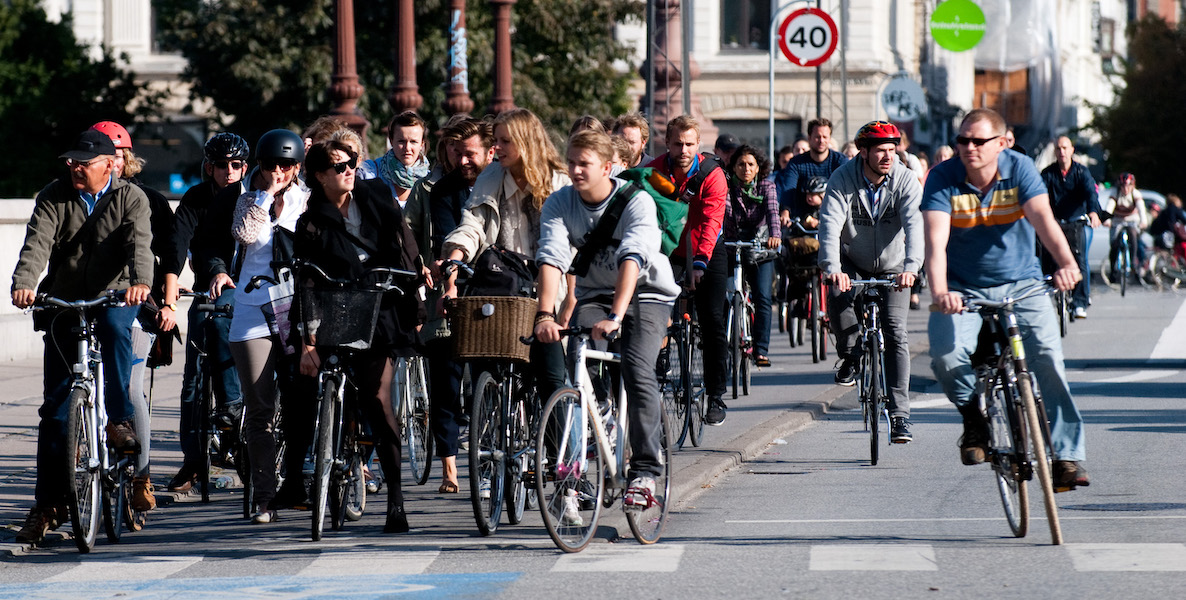![]() Usually it is really hot and humid in Philadelphia in the summer, but this summer will be something different.
Usually it is really hot and humid in Philadelphia in the summer, but this summer will be something different.
The National Oceanic and Atmospheric Administration (NOAA) forecasts that 2020 has a 75-percent chance of being the hottest year on record in the United States since records began in 1880, beating 2016. This summer will require the City to rethink how we deal with extreme heat and climate change.
It’s extremely worrisome what the long, hot summer months will bring to Philadelphia. What’s more troubling is which groups of people will suffer the most. Many Philadelphians are very vulnerable to the heat, but the risk is not evenly distributed.
The elderly, low-income, and people of color are particularly vulnerable. People without access to air conditioning and those who cannot afford to pay increased energy bills will be at risk. Low-income neighborhoods that lack tree cover and access to parks suffer the urban heat island effect, causing a 22-degree heat differential between parts of the city with and without trees.
Let’s identify the problems
![]() Before it gets too hot for us to think clearly, let’s start playing out how the dynamics of extreme heat and the Covid-19 crisis will connect this summer in Philadelphia. How will social-distancing and closed schools, camp facilities, and public cooling destinations like pools and libraries impact people’s lives? Then, let’s think about how through focusing on social justice and the Black Lives Matter movement, we might reimagine summer and work to promote climate justice in Philadelphia, now and in the future.
Before it gets too hot for us to think clearly, let’s start playing out how the dynamics of extreme heat and the Covid-19 crisis will connect this summer in Philadelphia. How will social-distancing and closed schools, camp facilities, and public cooling destinations like pools and libraries impact people’s lives? Then, let’s think about how through focusing on social justice and the Black Lives Matter movement, we might reimagine summer and work to promote climate justice in Philadelphia, now and in the future.
Covid-19 will hopefully be a thing of the past in future summers; however, the impacts of climate will continue to worsen. We need to act quickly in Philadelphia and cities across America to address the confluence of climate change, racism, the urban heat island effect, social-distancing, school and camp closures, environmental injustice and a federal administration determined to dismantle critical environmental protections and greenhouse gas regulations.
Long-term, we need to be building a city where climate justice and resiliency is a top priority.
Without access to pools and recreation centers this summer; energy efficient, well-maintained homes are our last defense against extreme heat. Housing conditions are critical to public safety, public health and climate resilience. However, people of color in Philadelphia neighborhoods are still feeling the effects of red-lining in the form of lower quality housing stock and the difficulty of making needed home repairs because of lack of equitable access to capital.
The continued impact of the institutionalized racism in our housing lending systems can be seen today in the physical conditions of the housing. The Federal Reserve Bank of Philadelphia concluded that Philadelphia is both above the national average for repair costs and in terms of the percentage of homes that need repairs. Compared to other big cities in the U.S., only Houston has a higher percentage of homes that need repairs and median repair costs are only higher in Chicago and San Francisco.
The Philadelphia Department of Public Health shows that housing code violations and rat complaints are both rising in the city. The Philadelphia Energy Authority concluded that more than half of all African-American households experience some form of energy insecurity annually; in the form of unpaid bills, sacrificing basic necessities or simply living with unhealthy temperatures to reduce cost.
The Philadelphia Department of Public Health has made great strides in reducing summer extreme heat deaths from 361 heat-related deaths in the 1990s to 72 in the last decade. Much of that success is due to decreased air pollution and the increased availability of air conditioning in homes, as well as in public spaces like libraries and recreation centers.
However, in summer 2020, there remains great uncertainty about how the City will provide heat relief with current social-distancing guidelines in place. Pools remain closed and the protective community amenities that usually serve as a backstop to extreme summer heat will likely not be able to accommodate the need.
What needs to happen at the City level
Extreme heat and Covid-19 are both most dangerous for the elderly, with nursing homes and retirement centers being hubs of the current pandemic. Last year when power went out at the The Pavilion apartments in Wynnefield Heights during an extremely hot day, 250 seniors were relocated to a temporary cooling shelter at West Philadelphia High School.
![]() Will this be possible this summer? What are the emergency plans? Just as the City was able to create temporary coronavirus hospital sites, like at Temple’s Liacouras Center, there may be a need for large air-conditioned spaces capable of allowing social-distancing.
Will this be possible this summer? What are the emergency plans? Just as the City was able to create temporary coronavirus hospital sites, like at Temple’s Liacouras Center, there may be a need for large air-conditioned spaces capable of allowing social-distancing.
Alternatively, the City could work with landlords, tenants, low-income homeowners, and the Philadelphia Energy Authority and Energy Coordinating Agency to quickly commit to funding and increasing access to air conditioning, low-cost energy, and neighborhood cooling resources.
Residents should be able to cool themselves in their homes so their homes can be places of refuge, rather than a threat to their health. The City’s “Restore, Repair, Renew” program providing low-interest loans for home repairs must be expanded amid proposed budget cuts.
Last year when power went out at the The Pavillion apartments in Wynnefield Heights during an extremely hot day, 250 seniors were relocated to a temporary cooling shelter at West Philadelphia High School. Will this be possible this summer? What are the emergency plans?
Penn State researchers recently published a report concluding that over the next 30 years, every county in Pennsylvania will experience an 8 to 12 percent increase in precipitation and an average temperature increase of 2.7 degrees Fahrenheit.
We know there are important physical investments that can be made to make cities more resilient to the effects of climate change and promote social and racial justice. Philadelphia has taken action to increase green space and tree coverage and manage stormwater while reducing automobile congestion and electricity consumption.
Equitably investing in our neighborhoods and making them resilient to climate change needs to continue to be a top priority in the city. Covid-19 has exposed how important parks and green spaces are to resilience: Now is the time to think bigger as we plan for the city’s future.
Needed action at the state and federal levels
We are proud to live in a city committed to addressing climate justice at the local level. But is this enough? If the federal government continues its effort to remove methane from the 2015 New Source Performance Standards for oil and gas facilities, the answer is a definite no.
Natural gas infrastructure is rapidly expanding across the state including pipelines, compressor stations and liquified natural gas export facilities right here in Southeast Pennsylvania and Philadelphia itself.
Methane leaks out of every facet of the natural gas industry and is 87-times more potent a greenhouse gas than carbon dioxide over a 20-year time period.
Researchers at Cornell and Penn State universities have recently concluded that both methane emissions and leakage rates are significantly underestimated by federal and state regulatory agencies.
Nationally, carbon dioxide emissions fell 12 percent from 2005 to 2019 with another significant decrease expected this year amid the Covid-19 pandemic, but increased methane emissions will diminish relief from the effects of climate change caused by this reduction in CO2 emissions.
The City of Philadelphia has little control over national public health standards for oil and gas facilities, but still must deal with the consequences of climate change, extreme heat and precipitation.
We applaud the City’s reaction to both the last decade of extreme heat and the current global pandemic. Staying cool while social-distancing will be a new challenge for Philadelphians this summer as we push state and federal governments to decrease greenhouse gas pollution.
Organizations, including Clean Air Council and Philadelphia Parks and Recreation have advocated for increased open streets to give kids and adults alike more space in the summer heat. While we support this effort, it must be emphasized that the street is often the hottest part of a neighborhood. We cannot expect asphalt surfaces to replace pools and air-conditioned environments during times of extreme heat.
In summer 2020, there remains great uncertainty about how the City will provide heat relief with current social distancing guidelines in place. Pools remain closed and the protective community amenities that usually serve as a backstop to extreme summer heat will likely not be able to accommodate the need.
It is also important to consider the impacts of climate change on our natural water resources where many Philadelphians recreate (against the advice of public health experts). Temple University’s Applied Microbiology Lab recently concluded that increased rainfall correlated with increased gastrointestinal disease in Pennsylvania in the last five years.
It is a frightening reality that many unofficial swimming areas in the city are dangerously close to our sewage outfalls, overflowing sewage into our rivers during rain events. The same extreme heat and precipitation that drives people to our rivers and creeks to cool (particularly if pools are closed) is what makes them more hazardous at those exact times of extreme weather.
The Covid-19 pandemic and the effects of climate change are inseparable. This summer, this combined public health crisis demands increased resources for cool public and private spaces in the city.
Long term, we need to be building a city where climate justice and resiliency is a top priority. City investments need to protect the most vulnerable in their homes and their communities which requires long-term, creative and strategic planning at the local and regional level that acknowledges community health and needs.
We also need to keep our eye on national environmental policies recognizing that federal greenhouse gas policy will determine the impact of climate change in our cities.
Russell Zerbo is an advocate at the Clean Air Council. Christina D. Rosan is an associate professor of Geography and Urban Studies at Temple University.
Photo courtesy Staff Sgt. Sheila deVera / U.S. Air Force


